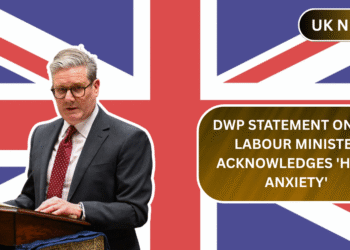Taking a break and going on holiday sounds like a great idea—but if you’re claiming certain benefits from the Department for Work and Pensions (DWP), it’s important to know the rules before packing your bags. Many people don’t realise that going abroad—even for a short trip—can affect their payments. In some cases, you could even lose your benefits if you don’t follow the guidelines.
Here’s everything you need to know about DWP’s holiday rules, how long you can stay abroad, what benefits are affected, and how to make sure you don’t end up with stopped payments.
Which Benefits Can Be Affected by Going Abroad?
This Article Includes
If you receive benefits like Universal Credit, Personal Independence Payment (PIP), or Jobseeker’s Allowance (JSA), the DWP has set specific rules for going abroad. These rules depend on the type of benefit you receive.
Here are some common ones that may be impacted:
- Universal Credit
- PIP (Personal Independence Payment)
- JSA (Jobseeker’s Allowance)
- ESA (Employment and Support Allowance)
- Carer’s Allowance
- State Pension (in limited cases with pension credit)
How Long Can You Be Abroad Without Losing Benefits?
Each benefit has different time limits and conditions. Here’s a quick look:
- Universal Credit: You can go abroad for up to one month, but you must still meet work-related requirements if they apply to you. If you’re required to job hunt, you may need to show evidence of this—even while away.
- PIP: You can go abroad for up to 13 weeks (or 26 weeks if you’re receiving treatment). But if you leave the UK for longer than 13 weeks without notifying DWP, your payments could stop.
- Carer’s Allowance: You can still receive this for up to 4 weeks if you’re taking a break from caring duties, but only under certain conditions.
- JSA and ESA: In most cases, if you go abroad, even for a few days, you must inform DWP. For Jobseeker’s Allowance, you might be able to continue claiming for up to 2 weeks, but only if the trip is to look for work in another country.
You Must Inform the DWP Before Travelling
One of the biggest mistakes people make is not telling DWP before leaving the country. Even if your trip is short, failing to notify them can result in:
- Suspended payments
- Overpayment recovery later
- Potential fraud investigations
You should contact the relevant department and provide details like your travel dates, destination, and reason for the trip. This can help avoid any confusion or issues while you’re away.
What If It’s an Emergency Trip?
In situations like a family emergency or medical need, DWP may consider exceptions. But even in emergencies, it’s best to inform them as soon as possible. You may need to show proof, such as a hospital letter or emergency flight booking.
Holidays in the EU: Are Rules Different?
Post-Brexit, the rules for benefits while travelling to EU countries have changed. You may no longer be eligible for certain benefits while living or staying in the EU long-term. If you’re thinking of moving or staying in the EU beyond the allowed period, it’s essential to speak with DWP beforehand.
What Happens If You Don’t Follow the Rules?
If you break the travel rules set by the DWP:
- Your benefits may be stopped or reduced.
- You may be asked to repay any overpaid amount.
- You could face an investigation for benefit fraud.
It’s better to play it safe and keep DWP informed.
Final Advice
If you’re planning a holiday or need to go abroad for any reason, make sure to:
- Check the specific rules for your benefit.
- Notify the DWP before you leave.
- Provide evidence if your trip involves medical reasons or emergencies.
- Return within the allowed timeframe to avoid issues.





















